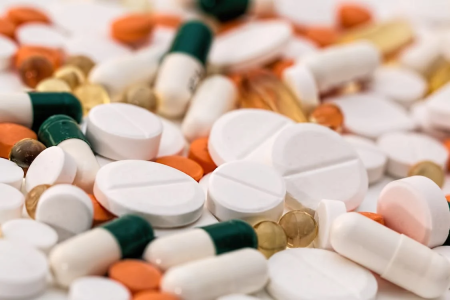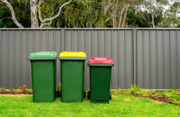Fake meds are getting past Aussie borders—here’s how to spot them
By
Maan
- Replies 0
Counterfeit medicines are making their way past international borders—and some are ending up worryingly close to Australian homes.
What appeared to be legitimate health and cosmetic products have now triggered fresh warnings from national health authorities.
What followed was a wave of border seizures and an urgent safety alert aimed at protecting everyday Australians.
Biosecurity breaches can be alarming, particularly when they involve public health and the integrity of safety measures.
What looked like everyday health and cosmetic products quickly became the centre of a nationwide crackdown.
What followed was a wave of urgent warnings—and a stark reminder about the hidden dangers of buying medication online.
Australia’s medicines watchdog launched fresh safety alerts after detecting a wave of counterfeit pharmaceuticals at the border, including fake versions of popular weight-loss drugs, vitamin injectables and tablets linked to COVID misinformation.
The Therapeutic Goods Administration (TGA) confirmed it had intercepted several illegal imports, many of which came packaged in professional branding designed to imitate legitimate products.
Laboratory testing revealed the truth behind the slick packaging—multiple items were either substandard or dangerously mislabelled.
Among the counterfeits were pre-filled syringes branded Fitaro—a product claiming to contain semaglutide, a diabetes drug in high demand for its weight-loss effects.
The TGA confirmed the Fitaro-branded syringes were counterfeit, with lab analysis showing some dosage strengths contained significantly less of the active ingredient than labelled.
‘We have conducted testing on several Fitaro-branded pre-filled syringes labelled as containing semaglutide,’ the TGA said.
‘Laboratory analysis found the following dosage strengths contain less than the stated amount of the active pharmaceutical ingredient semaglutide.’
The agency declared the products fake and warned of serious potential health risks.
Also seized were injectable products claiming to be Laroscorbine Platinum, a cosmetic vitamin C and collagen solution that appeared—at first glance—perfectly legitimate. The boxes bore the Roche branding, and some even included a ‘Beware of Counterfeit’ label, possibly to add a false sense of authenticity.
But the deception was quickly uncovered. Roche, the pharmaceutical company listed on the packaging, had ceased manufacturing Laroscorbine more than 20 years ago.
‘While these products appear genuine, Roche has confirmed they no longer manufacture Laroscorbine, and this, along with any product identified as Roche branded Laroscorbine is not genuine,’ the TGA warned.
The agency said the counterfeit products may be difficult to identify ‘to the untrained eye’, reinforcing the importance of purchasing medicines through official and lawful channels.
The crackdown didn’t stop there. Border Force also detected fake ivermectin tablets—another product that gained widespread attention during the COVID pandemic.
Two unregistered products, labelled Iverjohn-12 and Ivervid-12, had already been flagged in alerts dating back to 2021. The most recent seizures confirmed the ongoing issue, with further testing confirming the items were counterfeit under the Therapeutic Goods Act 1989.
‘As with the previous warnings issued, these products were purchased online from an overseas website and were not bought from an Australian pharmacy,’ the TGA said.
Images shared by the TGA showed packaging that could easily pass as legitimate. But authorities stressed the dangers behind such purchases, especially when sourced online from overseas vendors.
Counterfeit medicines not only breach Australian law—they can pose serious risks to health and safety, including incorrect dosages, harmful ingredients, or no therapeutic value at all.
The TGA urged anyone who had purchased the products to stop using them immediately and return any remaining doses to a pharmacy for safe disposal.
Consumers were reminded that counterfeit medicines cannot be legally imported under the Personal Importation Scheme, and knowingly importing or distributing them is a criminal offence.
Anyone experiencing side effects after taking these products was advised to seek medical attention without delay.
These counterfeits were nearly undetectable. Watch the full report below.
Source: Youtube/7NEWS Australia

With so many counterfeit products slipping through the cracks, do you still feel confident buying medicines online? Let us know your thoughts in the comments.
In a related story, we looked at the growing problem of fake Ozempic pens turning up across Australia—a concern especially relevant for seniors managing diabetes or weight-related health issues.
With counterfeit products now mimicking trusted medicines so convincingly, even experienced users may struggle to tell the difference.
If you or someone you know relies on Ozempic, this is one warning you won’t want to miss.
Read more: Fake copies of this drug are everywhere. Here's how to spot them
What appeared to be legitimate health and cosmetic products have now triggered fresh warnings from national health authorities.
What followed was a wave of border seizures and an urgent safety alert aimed at protecting everyday Australians.
Biosecurity breaches can be alarming, particularly when they involve public health and the integrity of safety measures.
What looked like everyday health and cosmetic products quickly became the centre of a nationwide crackdown.
What followed was a wave of urgent warnings—and a stark reminder about the hidden dangers of buying medication online.
Australia’s medicines watchdog launched fresh safety alerts after detecting a wave of counterfeit pharmaceuticals at the border, including fake versions of popular weight-loss drugs, vitamin injectables and tablets linked to COVID misinformation.
The Therapeutic Goods Administration (TGA) confirmed it had intercepted several illegal imports, many of which came packaged in professional branding designed to imitate legitimate products.
Laboratory testing revealed the truth behind the slick packaging—multiple items were either substandard or dangerously mislabelled.
Among the counterfeits were pre-filled syringes branded Fitaro—a product claiming to contain semaglutide, a diabetes drug in high demand for its weight-loss effects.
The TGA confirmed the Fitaro-branded syringes were counterfeit, with lab analysis showing some dosage strengths contained significantly less of the active ingredient than labelled.
‘We have conducted testing on several Fitaro-branded pre-filled syringes labelled as containing semaglutide,’ the TGA said.
‘Laboratory analysis found the following dosage strengths contain less than the stated amount of the active pharmaceutical ingredient semaglutide.’
The agency declared the products fake and warned of serious potential health risks.
Also seized were injectable products claiming to be Laroscorbine Platinum, a cosmetic vitamin C and collagen solution that appeared—at first glance—perfectly legitimate. The boxes bore the Roche branding, and some even included a ‘Beware of Counterfeit’ label, possibly to add a false sense of authenticity.
But the deception was quickly uncovered. Roche, the pharmaceutical company listed on the packaging, had ceased manufacturing Laroscorbine more than 20 years ago.
‘While these products appear genuine, Roche has confirmed they no longer manufacture Laroscorbine, and this, along with any product identified as Roche branded Laroscorbine is not genuine,’ the TGA warned.
The agency said the counterfeit products may be difficult to identify ‘to the untrained eye’, reinforcing the importance of purchasing medicines through official and lawful channels.
The crackdown didn’t stop there. Border Force also detected fake ivermectin tablets—another product that gained widespread attention during the COVID pandemic.
Two unregistered products, labelled Iverjohn-12 and Ivervid-12, had already been flagged in alerts dating back to 2021. The most recent seizures confirmed the ongoing issue, with further testing confirming the items were counterfeit under the Therapeutic Goods Act 1989.
‘As with the previous warnings issued, these products were purchased online from an overseas website and were not bought from an Australian pharmacy,’ the TGA said.
Images shared by the TGA showed packaging that could easily pass as legitimate. But authorities stressed the dangers behind such purchases, especially when sourced online from overseas vendors.
Counterfeit medicines not only breach Australian law—they can pose serious risks to health and safety, including incorrect dosages, harmful ingredients, or no therapeutic value at all.
The TGA urged anyone who had purchased the products to stop using them immediately and return any remaining doses to a pharmacy for safe disposal.
Consumers were reminded that counterfeit medicines cannot be legally imported under the Personal Importation Scheme, and knowingly importing or distributing them is a criminal offence.
Anyone experiencing side effects after taking these products was advised to seek medical attention without delay.
These counterfeits were nearly undetectable. Watch the full report below.
Source: Youtube/7NEWS Australia
Key Takeaways
- Counterfeit drugs, including fake semaglutide, vitamin injectables and ivermectin, were seized at Australia’s borders.
- The TGA found these products contained incorrect doses and warned they could pose serious health risks.
- Some items mimicked well-known brands like Roche, despite those companies no longer producing the products.
- Consumers were urged to avoid buying medicines online and to safely dispose of any suspicious products.
With so many counterfeit products slipping through the cracks, do you still feel confident buying medicines online? Let us know your thoughts in the comments.
In a related story, we looked at the growing problem of fake Ozempic pens turning up across Australia—a concern especially relevant for seniors managing diabetes or weight-related health issues.
With counterfeit products now mimicking trusted medicines so convincingly, even experienced users may struggle to tell the difference.
If you or someone you know relies on Ozempic, this is one warning you won’t want to miss.
Read more: Fake copies of this drug are everywhere. Here's how to spot them








